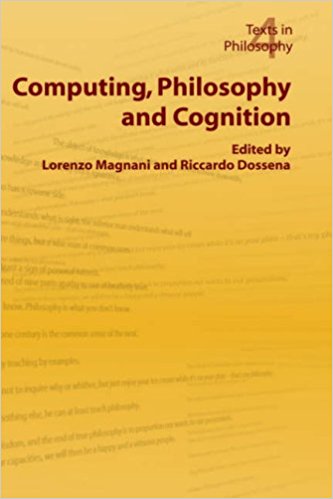The frame problem and the treatment of prediction
2005 Computing, Philosophy and Cognition (edited by Lorenzo Magnani & Riccardo Dossena), King’s College Publications: London, pp. 349–359
Last updated 12 July 2004
The frame problem is a problem in artificial intelligence that a number of philosophers have claimed has philosophical relevance. The structure of this paper is as follows: (1) An account of the frame problem is given; (2) The frame problem is distinguished from related problems; (3) The main strategies for dealing with the frame problem are outlined; (4) A difference between commonsense reasoning and prediction using a scientific theory is argued for; (5) Some implications for the computational theory of mind are discussed.

The frame problem is a problem in artificial intelligence that a number of philosophers have claimed has philosophical relevance. The structure of this paper is as follows: (1) An account of the frame problem is given; (2) The frame problem is distinguished from related problems; (3) The main strategies for dealing with the frame problem are outlined; (4) A difference between commonsense reasoning and prediction using a scientific theory is argued for; (5) Some implications for the computational theory of mind are discussed.
HTML version of full text not available
PDF available above
